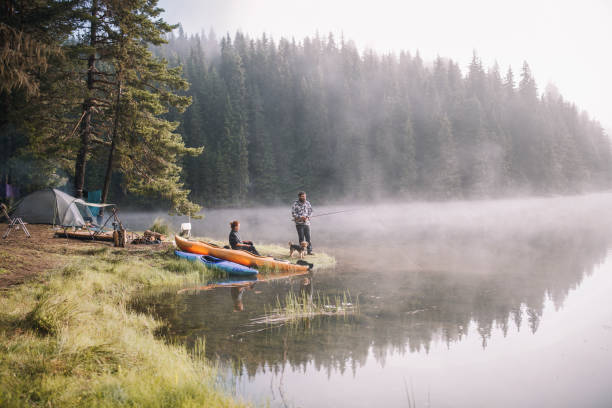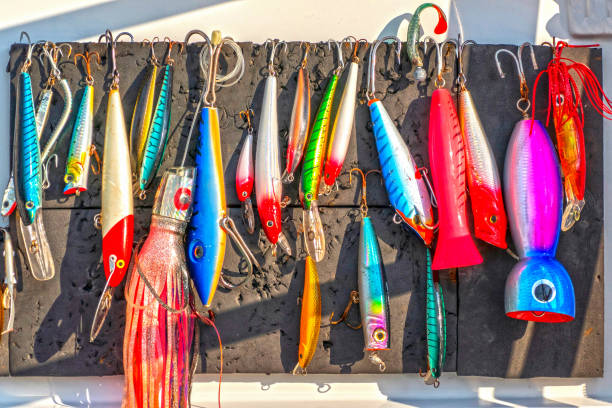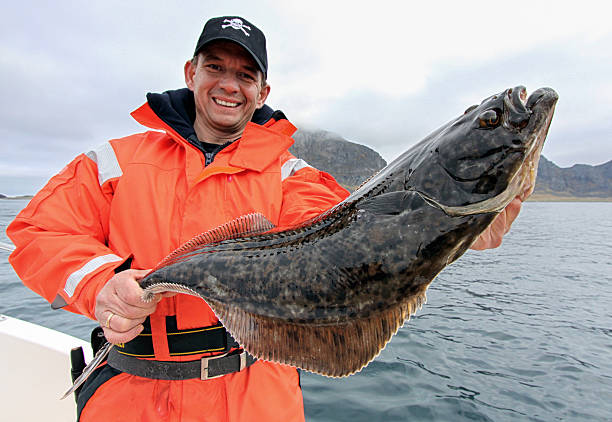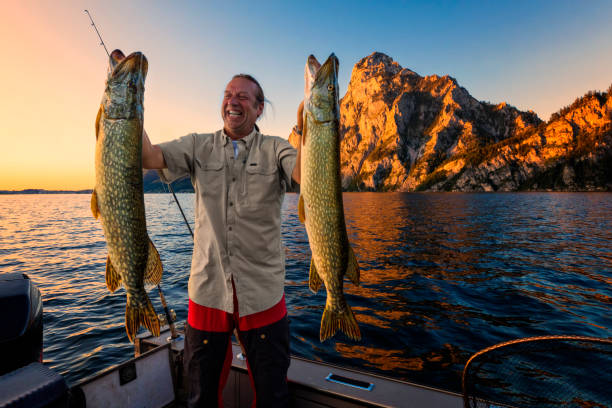Fishing can be a magnificent hobby that could possibly transform into a splendid professional career. Recognizing the ideal fishing spot, comprehending the best timing to achieve a larger haul, and grasping what lure will produce superior outcomes on your future outing are crucial. Offshore angling can grant immense satisfaction, though it requires plenty of patience and considerable practice to acquire the necessary skills to ascend to a professional level.
Offshore fishing is a type of ocean angling from the shore, but we’re still well within sight of land. Reef, beach, and pier fishing are both types of offshore fishing.

Offshore fishing typically means that there’s either something on the designating body of water or some other object in relative proximity to it that makes it possible for one to fish while being relatively near land-based resources. A boat can also be used for offshore ice fishing.
You always have your hook baited with redfish or any number of other baitfish found along the coast, so it swings back on the slackline closer to you while you stand away from the water at a safe distance until they get tired out enough you can haul them in.
Offshore fishing can be done from a pier, boat, or shoreline when the water is close enough. You can also do it from any of these structures that are built on the water’s edge to provide access for boaters and anglers alike. This includes seawalls, jetties, docks, and bridges further out. Some offshore fishing can even take place from cliffs and piers.
You may also read: Fishing Basics
Small boat and kayak anglers, snorkelers, and divers also fish this way. If you’re standing on a pier or the shoreline, your rod will be in a holder, but if you’re using a boat, hold it with one hand as you use the other to reel in your line, adjust your grip on the rod while fighting a hooked fish and stay balanced while making all of these moves.
Many consider offshore fishing a sport because of the challenge it presents, even for some who have been fishing their whole lives. You can aim for various kinds of fish, based on the time of year and weather conditions. You’ll need a fishing license for this type of fishing that may vary from state to state.

Where to Go
Offshore fishing trips are one way to help make that happen. This article offers some helpful advice about getting started with offshore fishing by discussing how to figure out where good spots are when they have the highest concentration of fish and which types of bait are best for catching them under different conditions. Whether you’re an expert or novice fisherman, you’ll learn something new about offshore fishing tips in this article.
First of all, where to go is one of the most crucial questions about offshore fishing. Some bodies of water are better than others for catching different types of fish, some areas have rocky bottoms or deep trenches that make this type of fishing impossible, and some places will be fantastic regardless of the weather.
You can find information about which bodies of water are pretty good for an offshore fishing trip by checking out a local bait and tackle shop, contacting the park or forest service department in your area, or simply asking around among your friends and family members.
Some of the most popular types of bait for offshore fishing include squid and mullet, but depending on where you’re going and what you’re targeting, there is any number of options you can consider.

Type of Bait to Use
The type of bait that will be best is another crucial factor for offshore fishing tips. Bait for offshore fishing is typically some type of fish that the intended catch will be attracted to. They are commonly used just behind a moving weight or another way to keep it at the proper depth, but some anglers prefer not to use them because they’re not as effective as live bait.
Related read: Guide to the Best Baitcaster Reels in 2021
Some of this will depend on the time of year and the type of fish you’re going after. In most cases, more advanced offshore fishermen will want to use live bait if they can get it because this is considered by many to be the best option. If that’s not possible, larger baits are recommended for more excellent catches, although some people prefer using smaller pieces because they’re more selective.

Just like most other types of fishing tips, this is another one that will change depending on the weather and water conditions at the time. You’ll find that different baits work better under other circumstances. When you’re off looking for offshore fishing tips, these are some of the questions about bait to ask yourself:
- Do you want to go with live or dead bait?
- How large of bait do you need to cast out to attract the type of fish you’re going after, and how far will it need to be pulled before they start eating?
- What type of weather is most common when you’ll be fishing off the coast, and will the water conditions give off any smell that will attract them?
- What types of fish are most common in this area, and how can you target those specific species?
These are just some questions to help beginner anglers get started with offshore fishing tips. With practice, you’ll learn what works best for each type of fishing trip you take.
When to Go
When looking for offshore fishing tips, your destination is essential, but timing can be just as crucial. There are certain times of the year when fish will be present in higher concentrations and others when they’ll be scarce. This is why it’s recommended to ask around among local bait and tackle shops, sportsmen, or other anglers about where to go and what time of year it is to find these types of answers.
You may also read: Best Fishing Poles and Whips – 2021 Reviews
Just like the most useful types of bait will change depending on where you’re going, the best times to go fishing offshore will also depend on your destination; however, there are some general guidelines to go by.

Getting Started with Offshore Fishing Tips
There are a lot of factors that go into successfully catching fish when you’re offshore, but the most important things become apparent when following these types of tips. Inevitably, there will be times when your bait gets eaten, your line breaks, or other things interfere with the fishing process, but these are some of the best tips to keep in mind when looking for offshore fishing tips to improve your skills.
For other tips: How to Set Up a Fishing Pole
When it comes to finding the right bait, you’ll find that different locations will have different types of fish that are more likely to be caught there at certain times. Live bait is typically preferred because it’s more selective.
Different bait will work better depending on the type of weather conditions you’re experiencing when fishing offshore. If it’s raining, you should use bright colors because they’ll be easier to spot in the water. Smaller pieces are recommended for cloudier days or other times when visibility is poor due to choppy waters.

Conclusion
Whether you go or what time of year it is, it’s always important to keep these things in mind. As long as you take the necessary precautions and use some of the tips above, you’ll be on your way toward developing a more successful fishing technique that will improve with practice.





